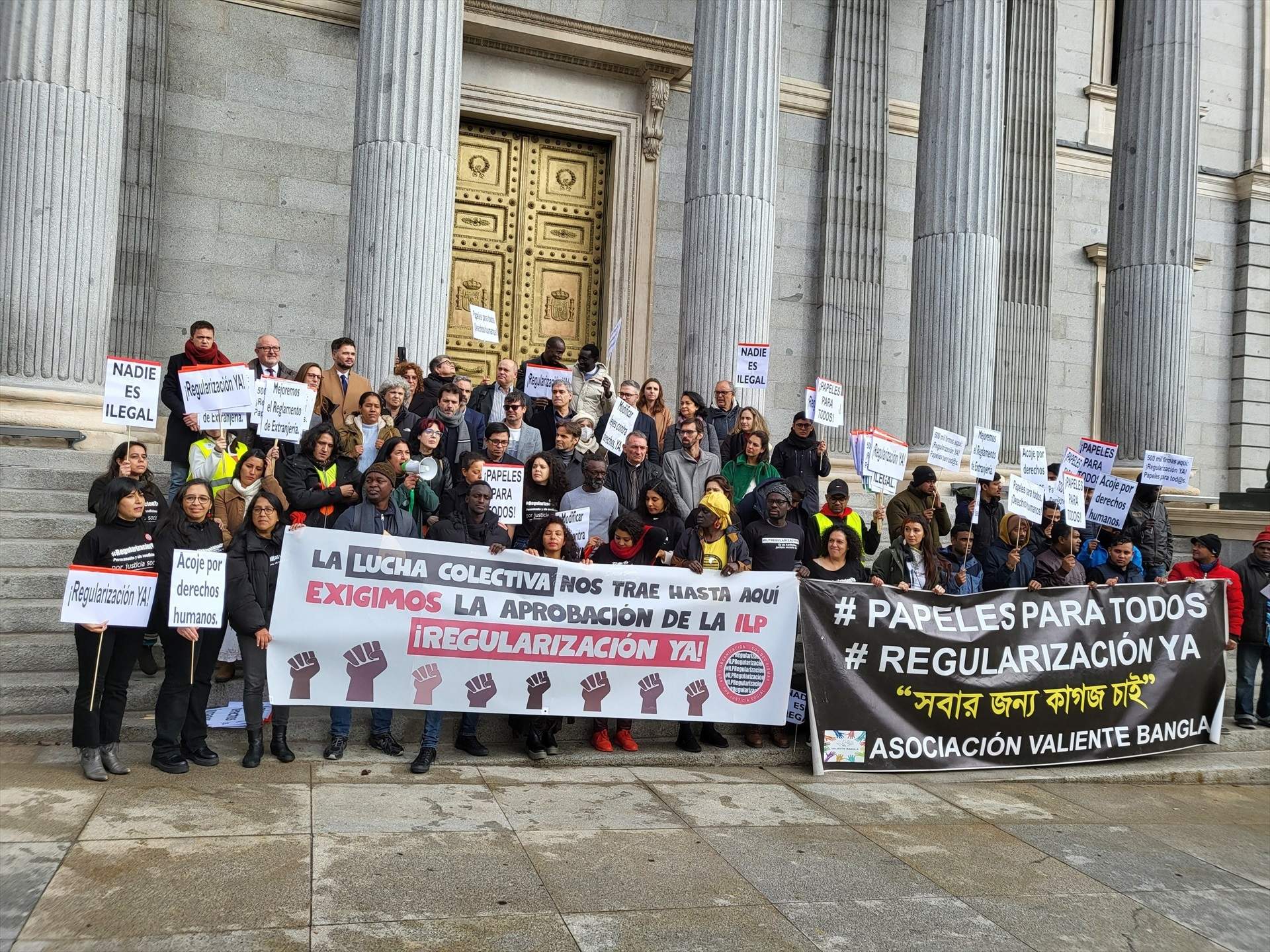310 votes in favour and 33 votes against. The Congress of Deputies has taken another step to allow an extraordinary regularization of around 500,000 migrants who have lived and worked in Spain for years, but have no residency papers: the lower house has agreed, by an unusual large majority, to begin parliamentary consideration of the popular legislative initiative (ILP) promoted by the Regularización Ya movement. Almost all of the parties in the house ended up supporting it, including the opposition People's Party - with the only exception being far-right Vox, who voted against it. The text, for which more than 700,000 signatures were collected, along with the support of 900 associations, has a single article that gives the Spanish government six months to approve a royal decree with the procedure to regularize the administrative situation of foreigners who were in national territory before November 1st, 2021. Now, the initiative will begin to be studied in Congress, where the parties will be able to present amendments to modify or supplement its content. The PSOE and Junts have already announced that they will do so. Shortly before the vote, dozens of people gathered outside the Congress in Carrera de San Jerónimo to celebrate the passing of this first hurdle with shouts of "No person is illegal" and banners reading "Borders kill" and "Survival is not a crime".
During the debate, Junts MP Josep Maria Cervera guaranteed his party's votes in favour of the initiative "out of respect for the 900 associations that have promoted it and the 600,000 people that have endorsed it with their signatures", but pointed out that his position is "without going into the substance" of the matter. "We will do it because we are talking about people and human rights, because we need to find ways to solve the current situation and because during the next legislative steps we will be able to make the contributions we consider, and because we are the ones most tired of claiming that parliaments must be able to talk about everything", he argued. In addition, he recalled that Junts agreed three months ago with the PSOE on the "comprehensive devolution" to the Generalitat of Catalonia of powers in immigration through Article 150.2 of the Constitution so that the Catalan government can "implement its own national policy that responds to the interests and need of Catalonia".
From ERC, Jordi Salvador defended that this ILP "should have a resounding and unanimous yes" from the chamber for "democratic reasons" and denounced that an irregular residency situation is a "form of modern slavery" and exposes many people to "labour exploitation, the violation of basic rights and bad living in sub-standard housing". "If we are consistent with the human rights we claim to defend, we cannot allow thousands of people to live in the most serious precariousness and vulnerability due to their irregular administrative situation", he proclaimed. "These people are workers, they are classmates", he added. Likewise, he stressed that the regularization would also benefit "the economy and the receptor society" and "immediately increase Social Security contributions and boost legal economic activity".
The PSOE, giving "dignity" to migrants; the PP, warning of a "call effect"
From the PSOE, Elisa Garrido emphasized that "it is difficult" not to agree with the basic objective of the ILP: "Give dignity and promote a regular administrative situation to people who live in our country and are part of our society". Likewise, she expressed the "respect" that the PSOE has for a "procedure of direct participation of citizens in legislative policy". Along these lines, in a press conference, the Socialist spokesperson in Congress, Patxi López, stated that the vote in favour is intended not to "disrespect the will of almost 700,000 Spanish citizens who have mobilized for this issue". However, he warned that the PSOE will present amendments to deal with the phenomenon of immigration in an "intelligent and reasonable" way: "It is not a question of free speech or closing borders, it is a question of knowing that a country like ours needs and will need a lot of immigrants", he explained.
On behalf of the PP, Sofía Acedo expressed the will of the People's Party to open the debate to "show up the Spanish government" and in order for people to "get to know the population that finds itself in an irregular situation". "It would not be responsible or positive to send the message that irregular routes of arrival in Spain end up being approved through extraordinary regularization procedures", she maintained. And she demanded more "technical and human resources at the Estrangeria (Foreigners) offices" and "more border control". The PP spokesperson in Congress, Miguel Tellado, assured that the PP are not "insensitive" to these demands, but warned of an alleged "call effect" that the regularization could have.
"Make migrant population visible and guarantee labour rights"
The exposition of motives at the start of the ILP bill asserts that the extraordinary regularization will make it possible to "make visible the entirety of the migrant population residing in the country", "compensate for the inequalities they present at their starting point" and "guarantee labour rights in conditions of equality, reducing situations of abuse and exploitation". It also calculates that between 390,000 and 470,000 people reside in Spain irregularly, "of which a third would be minors", and recalls that in the European Union there were 43 regularization programs in 17 member states between 1996 and 2008. Spain's last such initiative was in 2005.
In addition, it denounces that the irregularity represents a "deficit in public governance" and a "condemnation" to "labour exploitation", "invisibility before the institutions", "legal lack of protection" and "de facto exclusion from essential public services such as education and health”. It also warns that it "prevents many migrants from contributing in a dignified way with skills that are essential for the sustenance of society" and "limits the tax contributions of these workers to the indirect taxes of what they consume".

